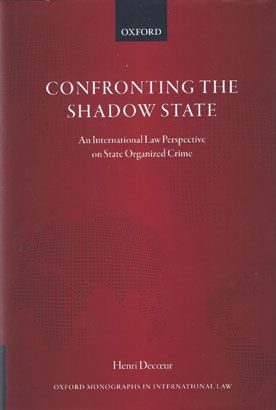
This book examines the rules and mechanisms of international law relevant to the suppression of state organized crime, and provides a normative justification for developing international legal mechanisms specifically designed to address this phenomenon.
It identifies the distinctive criminological characteristics of state organized crime, analyses the applicability, potential, and limits of the norms and mechanisms of international law relevant to the suppression of state organized crime, and discusses whether the involvement of state organs or agents in organized crime may amount to an internationally wrongful act giving rise to the international responsibility of the state. It also highlights a number of practical and normative shortcomings of the legal framework established by relevant crime-suppression conventions.
The book also sketches proposals to develop an international legal framework designed to hold perpetrators of state organized crime accountable. It presents a normative justification for criminalizing and suppressing state organized crime at the international level, proposes draft provisions for an international convention for the suppression of state organized crime, and discusses the potential role of the UN Security Council and of international criminal courts and tribunals, respectively, in holding perpetrators accountable.
Providing the first comprehensive analysis, from the perspective of international law, of a phenomenon so far mainly studied by criminologists, this study would appeal to researchers, social activists, and policy makers alike.